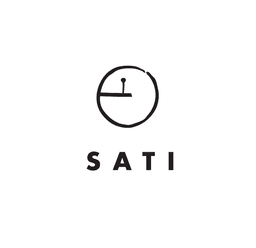มูลนิธิสติ ก่อตั้งขึ้นเมื่อปี 2013 เป็นองค์กรไม่แสวงหาผลกำไร ดำเนินการปรับปรุงการดูแลสุขภาพและการศึกษาสำหรับเด็กและเยาวชนที่มีความเสี่ยงและด้อยโอกาส มูลนิธิสติ ใช้รูปแบบการป้องกันและการรักษาผ่านการใช้เวิร์กช็อปการเรียนรู้เชิงรุก และโปรแกรมการดำรงชีวิตสำหรับเด็กและเยาวชน ซึ่งเป็นสื่อกลางในการแสดงออก การเยียวยา การศึกษา และการดูแลสุขภาพเชิงป้องกัน
เสกสรร รวยภิรมย์ ผู้ก่อตั้ง มูลนิธิสติ มุ่งเน้นที่จะเสริมศักยภาพเยาวชนและทำให้พวกเขามีตัวเลือกต่างๆ ที่ไม่เป็นอันตรายต่อตนเองหรือผู้อื่น โดยการทำโครงการต่างๆ ตั้งแต่โครงการน้ำสะอาดในภาคเหนือของประเทศไทยสำหรับโรงเรียนด้อยโอกาส ไปจนถึงการให้คำปรึกษาและการฝึกอบรมอาชีพสำหรับเยาวชนกลุ่มเสี่ยงในใจกลางกรุงเทพมหานคร
Sati Foundation was established in 2013 as a non-profit organization dedicated to improving healthcare and education for at-risk and underprivileged children and youth. The Sati Foundation employs preventive and therapeutic approaches through interactive learning workshops and life skills programs, serving as a medium for expression, healing, education, and preventive healthcare.
Seksan Ruayphrom, the founder of the Sati Foundation, focuses on empowering youth and providing them with safe alternatives that do not harm themselves or others. The foundation runs various projects, ranging from clean water initiatives in northern Thailand for underprivileged schools to counseling and vocational training for at-risk youth in the heart of Bangkok.
- ช่วยเหลือเด็กในพื้นที่จังหวัดกรุงเทพมหานคร เชียงราย เชียงใหม่ และแม่ฮ่องสอน สนับสนุนด้านสุขภาพ อาหารและน้ำดื่มที่มีสุขอนามัย รวมไปถึงเรื่องการเรียนและทุนการศึกษา
- โครงการสร้างระบบน้ำสะอาดอย่างยั่งยืน มีโรงเรียนและพื้นที่ในชนบทที่ห่างไกลร่วม 30 แห่ง ได้รับเครื่องกรองน้ำที่ผลิตน้ำสะอาดได้วันละ 1,000 ลิตร ไว้ดื่มกินอย่างถูกสุขอนามัย
- Assisting children in the areas of Bangkok, Chiang Rai, Chiang Mai, and Mae Hong Son by supporting their health, providing hygienic food and drinking water, and offering educational support and scholarships.
- The sustainable clean water project has provided water filtration systems to nearly 30 schools and remote rural areas, producing 1,000 liters of clean drinking water per day, ensuring hygienic consumption.


